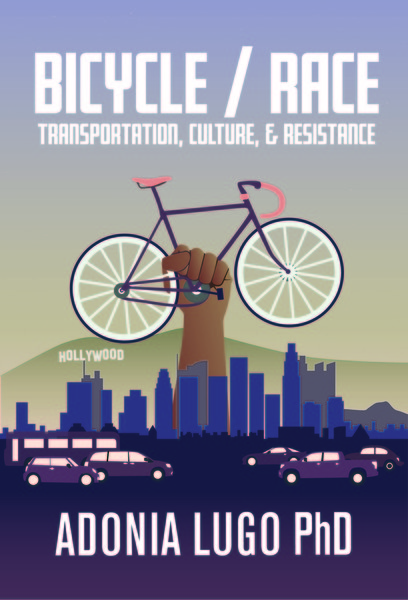I often hear people describe me as leading change in bicycling, in the sense that I am championing the inclusion of something new. I'd like to clarify something: I'm not bringing anything new into bicycling. I try to use my anthropology training to bring more existing bicycling realities into bicycle advocacy, research, and planning.
Many bike advocates refer to bicycling as though it's some isolated and singular phenomenon. Starting from this belief that bicycling exists as some sovereign thing, they assume they can choose whether to connect (their version of) bicycling to other issues through their advocacy agendas.
But, to quote myself and other bike scholars, bicycling does not happen in a vacuum. It's not separate from the streets, the neighborhoods, the communities, the life and history of the places where we ride. When bike advocates deny or selectively recognize these connections, which are fundamental features of bicycling and other mobilities, it's no wonder headaches and misunderstandings result.
I've been realizing lately, through conversation with some of the bike thinkers I know, that I bought into a myth that everyone who likes bicycling has something in common. I don't believe that anymore. I support bicycling because it's cheap, good for the environment, and a great metaphor for change. I've been lucky to find a particular bike movement that puts social justice at its center. But our perspective is not the norm in bike advocacy, as I'm reminded every time I see myself portrayed as some challenger.
I know that for some folks, their advocacy starts from a very real experience of feeling less-than on bikes. They've seen bicycling excluded from certain road or trail spaces, or they've felt under attack because of hostile motorists. Some of these advocates then make metaphorical connections to other oppressed groups and appropriate the language that describes their struggles, using phrases like "second-class citizen" to describe what they see as a lack of rights for cyclists.
The thing is, this step to claim through bike advocacy an oppressed minority status is itself very exclusionary. Since bicycle users are not a homogeneous group, many of us who bike are members of embattled racialized/gendered/classed/abled groups. For us, biking might be a liberating practice that encourages us in other areas of life. That doesn't mean biking is our only form of expression, or our most central one.
There is no singular bicycling identity; there are lots of shared cultures where people agree about what biking means and how to do it properly. Bike advocacy is one of those cultures. It's been my belief that opening bike advocacy to more bicycling perspectives will lead to better results. I have to admit that my recent experience working for the League of American Bicyclists has shaken my conviction that bike advocacy is ready to lead a diverse bike movement. Some individuals are still held back by some personal issues that keep them from celebrating the mixed, jumbled, beautiful reality of our streets.
For this reason, I think it's important to restate that bicycling is not the same thing as bicycle advocacy. If bike advocates want to speak on behalf of bicycling, they need to let go of the exclusionary fantasy that people like me are crashing some bike party.
We are the party.

